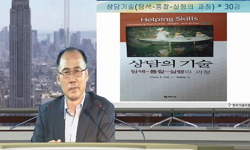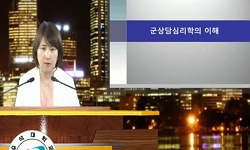본 연구에서는 내담자의 주장성 및 작업동맹과 특정 회기에서 내담자의 상담에 대한 불만 경험 및 그에 대한 표현의 관계를 살펴보았다. 또한 내담자들이 경험한 불만의 내용과 그러한 불만...
http://chineseinput.net/에서 pinyin(병음)방식으로 중국어를 변환할 수 있습니다.
변환된 중국어를 복사하여 사용하시면 됩니다.
- 中文 을 입력하시려면 zhongwen을 입력하시고 space를누르시면됩니다.
- 北京 을 입력하시려면 beijing을 입력하시고 space를 누르시면 됩니다.
작업동맹 및 주장성과 내담자의 상담에 대한 불만 경험 및 표현의 관계 = (The) relationship of working alliance and assertiveness to the experience and expression of dissatisfaction in counseling
한글로보기https://www.riss.kr/link?id=T7486852
- 저자
-
발행사항
부천 : 가톨릭대학교 대학원, 1998
-
학위논문사항
학위논문(석사) -- 가톨릭대학교 대학원 , 심리학과 상담심리학 전공 , 1999. 2
-
발행연도
1998
-
작성언어
한국어
- 주제어
-
KDC
186.3 판사항(4)
-
발행국(도시)
경기도
-
형태사항
52p. : 삽도 ; 26cm.
-
일반주기명
참고문헌: p. 32-35
- 소장기관
-
0
상세조회 -
0
다운로드
부가정보
국문 초록 (Abstract)
현재 실제로 상담을 받고 있는 56명의 내담자들로부터 두 차례에 걸쳐 자료가 수집되었다. 먼저 주장성과 작업동맹 질문지를 실시하고, 그 다음 회기 직후에 불만경험질문지와 회기평가질문지를 실시하였다. 그들 중 25명이 해당 회기에 불만을 경험하였다고 보고하였다.
연구 결과, 이전까지의 작업동맹이 높을수록 특정 회기에서 불만을 더 적게 경험하는 것으로 나타났다. 주장성과 불만경험정도 간에는 유의미한 관련이 없었다. 불만 표현에 있어서는 내담자의 주장성이 높을수록 더 많이 표현하였고, 작업동맹이 높을수록 더 많이 표현하는 것으로 나타났다. 불만내용으로는 상담자의 반응이나 태도에 대한 불만이 가장 많이(32%) 보고되었고, 그 외에 상담자의 특정 개입에 대한 불만이나, 상담자와의 의견차, 상담의 효율성에 대한 회의, 의사소통에서의 문제 등이 보고되었다. 불만을 표현한 이들은 그에 대한 이유로 상담자에 대한 신뢰를 가장 많이 보고하였고, 표현하지 않은 이들은 자신의 표현하지 않는 성격, 상담자의 기분을 고려해서, 자기 생각에 대한 확신이 없어서 등을 답하였다.
끝으로 본 연구의 의의 및 제한점, 향후 연구 방향에 대한 시사점들을 논의하였다.
본 연구에서는 내담자의 주장성 및 작업동맹과 특정 회기에서 내담자의 상담에 대한 불만 경험 및 그에 대한 표현의 관계를 살펴보았다. 또한 내담자들이 경험한 불만의 내용과 그러한 불만의 표현과정 혹은 표현하지 않은 이유 등에 대해 조사하였다.
현재 실제로 상담을 받고 있는 56명의 내담자들로부터 두 차례에 걸쳐 자료가 수집되었다. 먼저 주장성과 작업동맹 질문지를 실시하고, 그 다음 회기 직후에 불만경험질문지와 회기평가질문지를 실시하였다. 그들 중 25명이 해당 회기에 불만을 경험하였다고 보고하였다.
연구 결과, 이전까지의 작업동맹이 높을수록 특정 회기에서 불만을 더 적게 경험하는 것으로 나타났다. 주장성과 불만경험정도 간에는 유의미한 관련이 없었다. 불만 표현에 있어서는 내담자의 주장성이 높을수록 더 많이 표현하였고, 작업동맹이 높을수록 더 많이 표현하는 것으로 나타났다. 불만내용으로는 상담자의 반응이나 태도에 대한 불만이 가장 많이(32%) 보고되었고, 그 외에 상담자의 특정 개입에 대한 불만이나, 상담자와의 의견차, 상담의 효율성에 대한 회의, 의사소통에서의 문제 등이 보고되었다. 불만을 표현한 이들은 그에 대한 이유로 상담자에 대한 신뢰를 가장 많이 보고하였고, 표현하지 않은 이들은 자신의 표현하지 않는 성격, 상담자의 기분을 고려해서, 자기 생각에 대한 확신이 없어서 등을 답하였다.
끝으로 본 연구의 의의 및 제한점, 향후 연구 방향에 대한 시사점들을 논의하였다.
다국어 초록 (Multilingual Abstract)
Fifty-six clients who were currently in counseling contributed data in the study. Data were collected for 2 times. Fist, the Rathus Assertiveness Scale and the Working Alliance Inventory were completed. Immediately after the next session, clients completed the Experience of Dissatisfaction in Counseling Questionnaire and the Session Evaluation Questionnaire. Among them, twenty-five reported that they had dissatisfactions during the counseling session.
The result indicated that the experience of dissatisfaction in counseling was negatively related with the working alliances, but was not significantly related with client's assertiveness, The expression of dissatisfaction was positively related with client's assertiveness and working alliance. For the contents of dissatisfaction in counseling, dissatisfaction about the responses or the attitudes of counselors were most frequently reported. Besides, dissatisfaction about insufficiency of counseling time, specific intervention, counselor's leading style, and disagreement in opinion were mentioned. For the reason for expressing dissatisfaction to the counselor, trust in counselor was most frequently mentioned. The reason for no expressing dissatisfaction includes his/her characteristics of no expressing dissatisfaction, no having conviction about his/her thoughts, and worrying about counselor's feeling, etc.
Finally, the implications and limitations of the study and the suggestions for the future studies were discussed.
This study attempted to test the relationship of assertiveness and working alliance to the experience and expression of dissatisfaction in counseling. The contents of dissatisfaction, the courses of expression, and the reason for no expressing dissati...
This study attempted to test the relationship of assertiveness and working alliance to the experience and expression of dissatisfaction in counseling. The contents of dissatisfaction, the courses of expression, and the reason for no expressing dissatisfaction were also explored.
Fifty-six clients who were currently in counseling contributed data in the study. Data were collected for 2 times. Fist, the Rathus Assertiveness Scale and the Working Alliance Inventory were completed. Immediately after the next session, clients completed the Experience of Dissatisfaction in Counseling Questionnaire and the Session Evaluation Questionnaire. Among them, twenty-five reported that they had dissatisfactions during the counseling session.
The result indicated that the experience of dissatisfaction in counseling was negatively related with the working alliances, but was not significantly related with client's assertiveness, The expression of dissatisfaction was positively related with client's assertiveness and working alliance. For the contents of dissatisfaction in counseling, dissatisfaction about the responses or the attitudes of counselors were most frequently reported. Besides, dissatisfaction about insufficiency of counseling time, specific intervention, counselor's leading style, and disagreement in opinion were mentioned. For the reason for expressing dissatisfaction to the counselor, trust in counselor was most frequently mentioned. The reason for no expressing dissatisfaction includes his/her characteristics of no expressing dissatisfaction, no having conviction about his/her thoughts, and worrying about counselor's feeling, etc.
Finally, the implications and limitations of the study and the suggestions for the future studies were discussed.
목차 (Table of Contents)
- 목차
- 논문개요 = 1
- Ⅰ. 서론 = 2
- 1. 내담자의 상담에 대한 불만 경험 및 그 표현 = 2
- 2. 내담자의 주장성과 불만 표현 = 9
- 목차
- 논문개요 = 1
- Ⅰ. 서론 = 2
- 1. 내담자의 상담에 대한 불만 경험 및 그 표현 = 2
- 2. 내담자의 주장성과 불만 표현 = 9
- 3. 작업동맹과 내담자의 불만 표현 = 10
- (1) 작업동맹의 개념 및 선행 연구 개관 = 10
- (2) 작업동맹과 내담자 불만표현 = 12
- 4. 연구문제 및 가설 = 13
- Ⅱ. 방법 = 16
- 1. 참가자 = 16
- 2. 측정 도구 = 16
- 3. 절차 = 18
- Ⅲ. 결과 = 19
- 1. 주장성 및 작업동맹과 불만 경험의 관계 = 19
- 2. 주장성 및 작업동맹과 불만 표현의 관계 = 21
- 3. 내용 분석 = 24
- Ⅳ. 논의 = 27
- 참고문헌 = 32
- 부록 = 36
- 영문인준서 = 49
- ABSTRACT = 51












